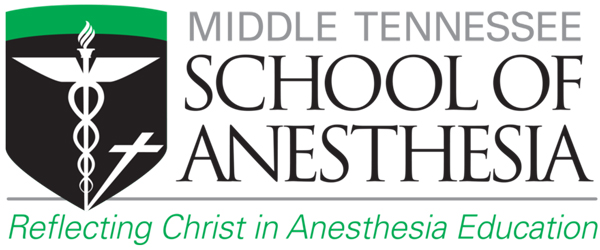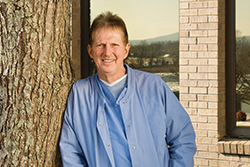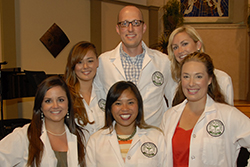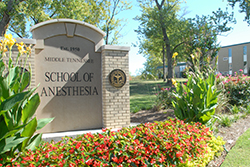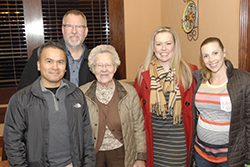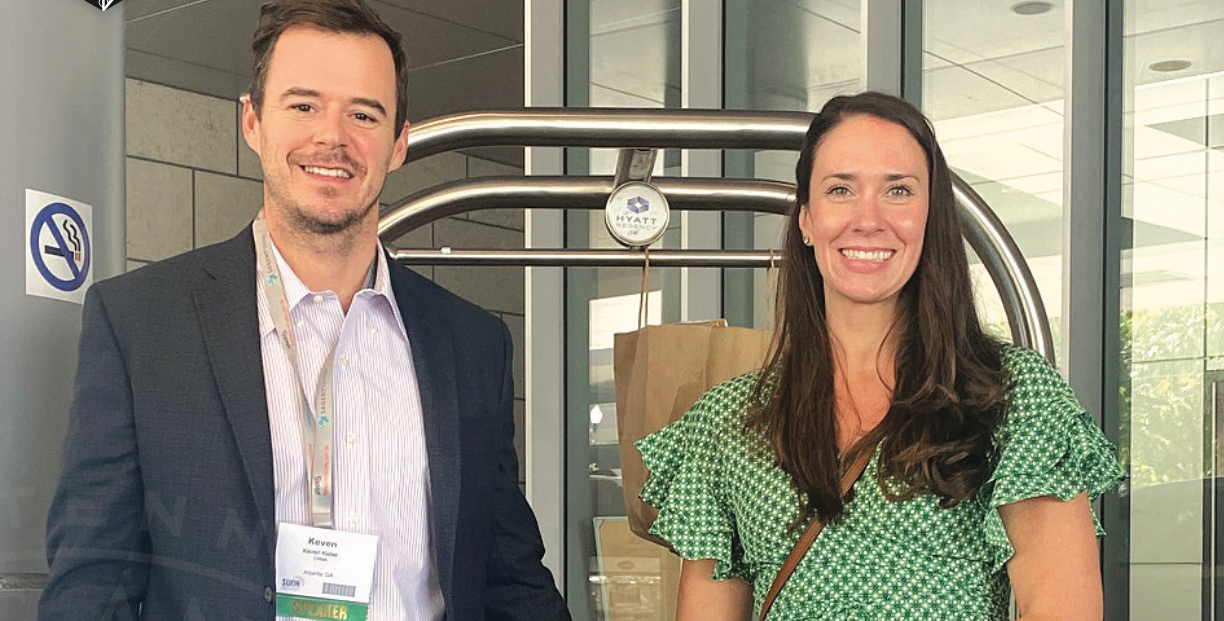
Airways newsletter features research on opioid free anesthesia with robotic-assisted prostatectomy
February 28, 2023
MTSA’s latest issue of the Airways newsletter features a synopsis of research by the husband-and-wife team of Keven Keller, CRNA, and Katie Keller, CRNA, both MTSA graduates. Their research was submitted for publishing in the Journal of PeriAnesthesia Nursing and continues the trend of MTSA graduates helping to advance opioid-sparing interventions and promoting evidence-based practice.
“The experience Katie and I had at MTSA put us head-and-shoulders above others we worked with because the clinical situations truly prepared us to be independent CRNAs.” – Keven Keller, CRNA, Class of 2013
TITLE: Short-Term Patient Outcomes after Implementation of Robotic-Assisted Radical Prostatectomy under Opioid Free Anesthesia at an Ambulatory Surgery Center
AUTHORS: Keven Keller, Katherine Keller, Thomas Baribeault, and Kenneth A. Wofford
SYNOPSIS: Opioid free anesthesia (OFA) is associated with decreased risk of postoperative nausea and vomiting (PONV) and need for rescue analgesia, making it ideal for patients anticipating same-day discharge. The purpose of this project was to describe the perioperative care and short-term outcomes for patients undergoing robotic-assisted radical prostatectomy (RARP) under OFA at an ambulatory surgical center (ASC).
A retrospective descriptive design was utilized to examine the perioperative care and short-term outcomes of patients undergoing RARP under OFA at an ASC.
The records of all sequential patients undergoing RARP over an 18-month period were reviewed. Data collected included patient comorbidities, surgical procedures, pre-, intra-, and post- medications administered, verbal numeric rating scale (VNRS) for pain scores, times to oral intake, ambulation, and discharge, patient disposition, and unplanned return to the ER or hospital within 30 days.
Data were extracted from 54 sequential records. Median VNRS scores were zero throughout PACU stay. Fifty-three patients (98.1%) were successfully discharged home, with an average postoperative stay of 250.8 (SD 35.0) minutes. There were no complaints of post-discharge nausea and vomiting or intractable pain at 72 hours after surgery. One patient was transferred to hospital and two patients returned to the emergency room within 30 days.
Conclusions: Although generalizability is limited, these results suggest that carefully selected patients can be discharged home after RARP under a balanced OFA technique. Innovative practices are needed to address the current backlog of patients needing non-emergent surgery. Discharge home avoids the increase in resource consumption and infection risk associated with hospital admission.
About the Authors
 Keven and Katie Keller are the founders and co-CEOs of Keller Anesthesia LLC in Atlanta. Formed in 2016, their group provides services at nine surgery centers in metro Atlanta, all focused on urology and gynecology. With 24 CRNAs on staff, their most common cases include kidney stone treatments, prostate biopsies, bladder tumors, vaginal repairs and hysterectomies.
Keven and Katie Keller are the founders and co-CEOs of Keller Anesthesia LLC in Atlanta. Formed in 2016, their group provides services at nine surgery centers in metro Atlanta, all focused on urology and gynecology. With 24 CRNAs on staff, their most common cases include kidney stone treatments, prostate biopsies, bladder tumors, vaginal repairs and hysterectomies.
Keven and Katie met while working as ICU nurses at Atlanta Medical Center. Both applied and were accepted to MTSA at same time, graduating from the Master’s program in 2013 and getting married the same year. They now have two daughters, Brinley, age 5, and Adeline, age 4.
“We managed to make it through anesthesia school together, so we figured this marriage is going to be rock solid,” Keven said. “When it comes to balancing our personal and professional life together, we like to say, ‘teamwork makes the dream work.’”
“We’ve always done everything together. It’s a partnership,” Katie said. “We bounce ideas off each other, and we both have areas of strength that are different but complementary.”
The Kellers’ research began as an attempt to minimize or eliminate opioid usage and enable quicker recovery by surgical patients. They were initially hesitant but, after extensive training, they were able to design an opioid-free ERAS urology protocol. It includes not only pre-op protocols but also steps to take several days prior to help prep patients all the way through the post-op period.
“From our research, we’re the first group to be able to do robotic prostatectomy at an ambulatory surgery center without opioids. For these and other applicable cases, this is a great option because it costs less. Being able to offer this to patients safely and to have better outcomes is a game changer,” Keven said.
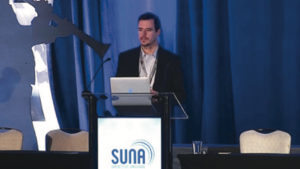 One aspect of their research that they found most surprising was the negative sequela associated with opioid use. They recognized the pain reflex was much higher when opioids are used versus none at all. And there are many other negative side effects, such as longer lengths of stay, altered mental status, ileus and respiratory depression.
One aspect of their research that they found most surprising was the negative sequela associated with opioid use. They recognized the pain reflex was much higher when opioids are used versus none at all. And there are many other negative side effects, such as longer lengths of stay, altered mental status, ileus and respiratory depression.
“It was shocking to realize how we’ve always practiced surgical pain management, when better alternatives are often available. It’s amazing that we can get patients in and out of a surgery center the same day. And the patients are blown away. They come in expecting to hurt and instead then they’re able to get up and leave within a matter of hours,” Katie said.
The Kellers both mentioned their experience at MTSA as a critical element of their success as CRNAs.
“MTSA’s program in general – the fact that we went to so many different clinical sites – gave us a variety of learning environments. I don’t know that we could have accomplished so much early on in our careers without that,” Katie said.
“We’re really grateful to MTSA and President Chris Hulin for giving us the opportunity. The school has done a phenomenal job. The experience Katie and I had at MTSA put us head-and-shoulders above others we worked with because the clinical situations truly prepared us to be independent CRNAs. Also, [MTSA Dean Emerita] Ikey DeVasher was there at the time. She and her husband, Bernard, were strong, faith-based leaders who really set us up for success,” Keven added.


